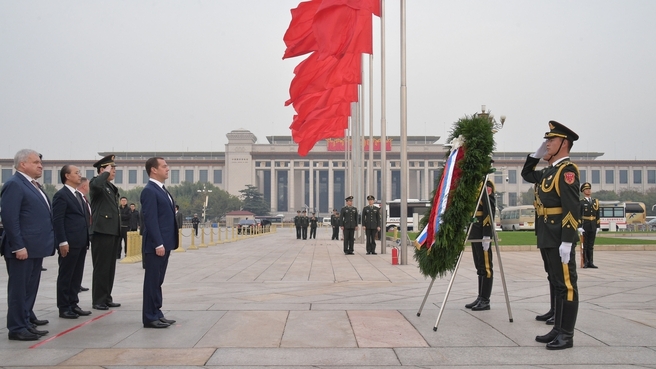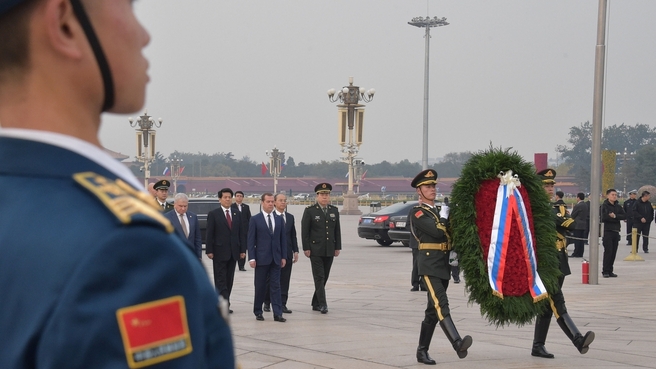The 31st meeting of the Foreign Investment Advisory Council in Russia (FIAC) (hereinafter referred to as the meeting) took place on 16 October 2017 under the chairmanship of Prime Minister and FIAC Chairman Dmitry Medvedev.
The meeting was attended by heads of major world companies and banks.
The Foreign Investment Advisory Council in Russia (hereinafter referred to as the Advisory Council) provides ongoing support to the Russian Government in developing measures to promote good conditions for business activities, attracting investment and encouraging exports.
Advisory Council members took an active part in drafting proposals aimed at upgrading the legislative foundation and law enforcement norms on doing business.
In 2018 the Advisory Council will focus on the following priority areas.
Localising production in Russia
Drafting proposals to use the infrastructure for supporting small and medium-sized business to integrate Russian suppliers into global added value chains.
Improving tax administration
Preserving tax benefits for movable property.
Improving customs procedures
Drafting proposals to improve implementation of customs procedures on customs territory to encourage exports.
Drafting proposals to streamline the work of authorised economic operators.
Removing administrative barriers and improving tax regulation
Bolstering the activities of the Advisory Council members in assessing the effectiveness of legislative acts that concern interests of entrepreneurs and other economic entities with due account of the risks revealed during the assessment of regulatory impact.
Drafting proposals to upgrade the regulatory base in dealing with production and consumption waste, including harmonising conditions for regulated entities and establishing balanced increase in the recycling rate.
Developing trade and the consumer market
Drafting proposals to streamline the introduction of online veterinary certification of monitored products.
Drafting proposals to upgrade state veterinary supervision of processed and packed products of animal origin that were subjected to thermal or other industrial treatment.
Drafting proposals to promote healthy lifestyle and balanced diet and ways of countering non-infectious diseases.
Drafting proposals on elaborating and adopting phytosanitary legislative acts.
Raising energy efficiency
Drafting proposals to improve the mechanisms of implementing investment projects on upgrading generating equipment.
Developing healthcare and the pharmaceutical industry
Drafting proposals to improve the legislative framework regarding the circulation of pharmaceuticals and medical devices, increase the efficiency of benefits to encourage the localisation of medicines, including innovative products, protect intellectual property rights, and foster cooperation in science.
Making better use of natural resources
Drafting proposals to improve the procedure of export of geological information.
Drafting proposals to improve legislation on providing government services to foreign companies and their accredited affiliates.
Developing the banking sector and financial markets
Drafting proposals to improve criteria for selecting banking institutions in which it is possible to place funds of the Government, state corporations and strategic companies and which can issue bank guarantees in behalf of the Government.
Promoting innovative development
Drafting proposals to improve innovation policy, including streamlining the requirements on the localisation of software and electronic components, and cooperation with educational institutions in training highly qualified personnel and ensuring the sustainable development of industry and energy sector.
In 2018 the Advisory Council will concentrate on implementing these priority tasks in order to reach the main goal of improving Russia’s investment climate.
In addition, the Advisory Council plans to develop such areas of activity as developing the Far East and Siberia and improving Russia’s investment image.
Advisory Council members will further use their expertise to help the Russian Government to implement the tasks of strengthening the national economy.
The next, 32nd meeting of the Advisory Council is scheduled for the third Monday of October 2018.

